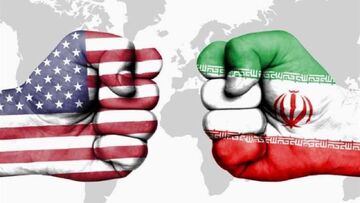TEHRAN (Bazaar) –Nader Entessar, Professor Emeritus of Political Science from university of South Alabama says the current tension between Washington and Riyadh is temporary.
“The U.S. and Saudi Arabia are like conjoined twins that cannot be easily separated from each other,” Entessar told Bazaar.
Following is the full text of the Bazaar interview with Professor Entessar:
Q: The decision of OPEC+ to reduce the production of two million barrels has caused disputes between America and Saudi Arabia. How serious are these differences?
A: The current tension between Washington and Riyadh is temporary. The U.S. and Saudi Arabia are like conjoined twins that cannot be easily separated from each other.
Q: How effective is the OPEC+ decision in keeping energy prices high at the global level?
A: The law of supply and demand will ultimately determine energy prices on a global scale. Needless to say, OPEC+ can play a major role in the supply end of this chain as long as its member states maintain their cohesion and do not cheat on each other.
Q: It seems that with this decision, Saudi Arabia has this assessment that the Biden government is a one-term administration, and with this action, it also provides the ground for the presence of Republicans in the White House. Do you agree with this assessment?
A: Yes, in general, I agree with this assessment. A few days ago, a Saudi official divulged that Biden had asked Riyadh to delay the oil production cuts for another month and until after the upcoming U.S. congressional elections. In other words, Washington was asking Riyadh to help the Democrats in the November 2022 elections, but the Saudis did not oblige and went ahead with their decision to support oil production cuts by OPEC+.
Q: Some American officials talk about revising relations with Saudi Arabia. Are these threats serious or are they basically caused by the diminishing importance of the Persian Gulf in America's national security strategy?
A: From time to time, American officials express their frustration with a particular decision by Saudi Arabia and threaten to do X, Y, or Z. But we should not take these bloviations seriously.
Q: According to some reports, the new decision made by OPEC+ to reduce oil production can cause differences in relations between Riyadh and Abu Dhabi. Can these differences become serious?
A: Riyadh and Abu Dhabi have had their differences on regional issues in the past. However, for better or worse, they need each other to advance their regional ambitions. Saudi Arabia and the United Arab Emirates may disagree with each other, but they are well aware there are limits to their public posturing, and they are two sides of the same coin. Moreover, both sides do not want to take any measures that might damage the long-term viability of the UAE-Israel-Saudi Arabia axis.















نظر شما